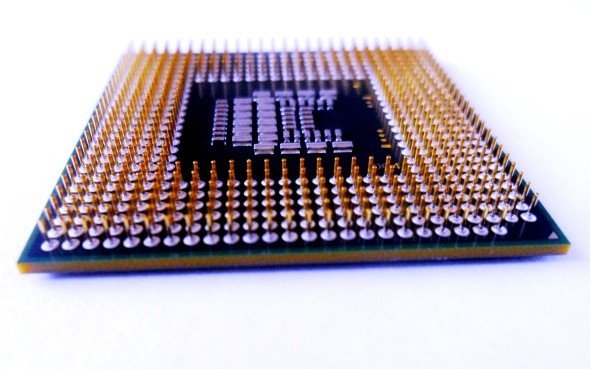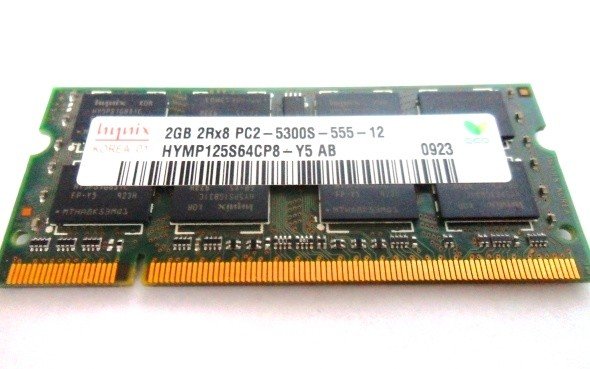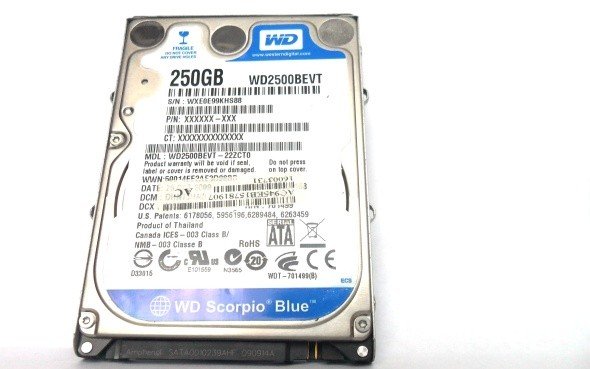The speed and performance of a computer is determined by many factors. It is impossible to achieve significant performance improvements by improving the characteristics of any one device, for example, by increasing the processor clock speed. Only by carefully selecting and balancing all computer components can you achieve a significant increase in computer performance.
The slower the drive, the slower the virtual memory performance. And the slower your general system. Fast processor and a meager graphics card equal a poor gaming experience, but the opposite can be a great gaming experience. It's a real look and you'll realize that chip speed matters little when it comes to Internet functionality.
Despite all this, chip speed remains central to computer makers' marketing plans. This is because chip speed is the easiest way to get your attention: Misinformed consumers get faster, the better. Keep this in mind the next time some salespeople try to convince you to upgrade.
It is important to remember that the computer cannot run faster than the slowest device used to perform the task.
CPU clock speed
The most important parameter of computer performance is processor speed, or, as it is called, clock frequency, which affects the speed of operations in the processor itself. The clock frequency is the operating frequency of the processor core (that is, the part that performs the main calculations) at maximum load. Note that other computer components may operate at frequencies different from the processor frequency.
Determining the clock speed of a computer is relatively simple. It is important to understand the meaning of clock speed in a computer. Computers used internal clocks to synchronize all processes and calculations. This internal clock ensures that every circuit inside the computer is up and running at the same time. The cycles per second on the internal clock measure the clock speed of the computer. It is important to remember that it is a misconception that the speed of the computer clock is the only determining factor in the overall speed of the computer.
The unit used to measure the clock speed of a computer is called the hertz. This means one cycle per second and measures the speed of the clock. In computer clock speed, one hertz is equivalent to one tick per second. A megahertz is equal to a million ticks per second, and one gigahertz is equal to one billion ticks per second.

The clock frequency is measured in megahertz (MHz) and gigahertz (GHz). The number of cycles per second performed by a processor is not the same as the number of operations a processor performs per second, since many mathematical operations require multiple clock cycles to implement. It is clear that under the same conditions, a processor with a higher clock speed should work more efficiently than a processor with a lower clock frequency.
Download list and editing it
Clock speed is used as an approximate measurement of a computer's speed in calculations and data processing. The measurement of how fast a computer uses its clock speed has become a source of contention among groups and companies.
In the System Properties window, on the General tab, find the “Computer” label in the lower right corner. Some computer technicians or enthusiasts upgrade a computer's clock speed or processor speed by overclocking it. Overclocking a computer causes the processor to run faster than it is designed to and can cause the computer to become faster. Manufacturers of processors and chipsets warn that the increase in clock speed is insignificant compared to the effort of overclocking and the risk of destroying the chipset.
As the clock frequency of the processor increases, the number of operations performed by the computer in one second also increases, and consequently, the speed of the computer also increases.
RAM capacity
An important factor affecting computer performance is the amount of RAM and its speed (access time, measured in nanoseconds). Type and volume random access memory has a great impact on the speed of the computer.
Here are the important characteristics of processors. Another defining characteristic of a processor is the socket it is designed to fit. Table 5-1 describes issues with the ability to update using processor socket. Table 5-1: Upgrade by processor type.
Clock frequency processor, which is specified in megahertz or gigahertz, determines its performance, but clock speeds are meaningless for processor lines. Faster host bus speeds improve processor performance, even for processors running at the same clock speed.

The fastest running device on a computer is CPU. The second fastest device in a computer is RAM, however, RAM is significantly slower than the processor.
To compare the speed of the processor and RAM, it is enough to cite only one fact: almost half of the time the processor is idle. waiting for a response from RAM. Therefore, the shorter the access time to RAM (i.e., the faster it is), the less the processor idle, and the faster the computer runs.
Processors use two types of cache memory to improve performance by buffering transfers between the processor and relatively slow main memory. Level 1 cache size is a feature of the processor architecture that cannot be changed without redesigning the processor.
This was due to the fact that Prescott was not just a dying Northwood crystal. Process size matters because, all other things being equal, a processor that uses a smaller process size can run faster, use lower voltage, consume less power, and produce less heat. The processors available at any given time often use different fabric sizes. When you select an upgrade processor, choose one with a smaller fabric size.
Reading and writing information from RAM is much faster than from any other device for storing information, for example, from a hard drive, Therefore, increasing the amount of RAM and installing faster memory leads to increased computer performance when working with applications.
Different processor models support different sets of features, some of which may be important to you and some of which may not be of concern to others. Here are five potentially important features that are available on some, but not all, modern processors.
On this moment For most people, 64-bit data support is not important. If code, such as a buffer jump exploit, attempts to run in unused memory space, the processor returns an error operating system. In both cases, the technologies used in mobile processors, were ported to desktop processors, power consumption and heat production became problematic. Essentially, these technologies work by reducing processor speed when the processor is idle or lightly loaded.
Hard drive capacity and hard drive speed
Computer performance is affected by the hard drive bus communication speed and the free amount of disk space.

Volume hard drive, typically affects the number of programs you can install on your computer and the amount of data you can store. Storage capacity for hard drives measured, as a rule, in tens and hundreds of gigabytes.
Disabling unused interfaces in BIOS
Or you can make small but beneficial reductions in energy consumption, heat production and system noise. The obvious solution was to put two processor cores in one processor package. Unfortunately this means that dual core processors are not a reasonable upgrade option for most people. The processor core defines the basic architecture of the processor. A processor sold under a specific name may use any of several cores.
Using the kernel name is a convenient shorthand way to briefly indicate numerous processor characteristics. You may remember the processor core name as being similar to the major version number software. These minor changes are called major steppings. It's important to understand the basics of base names because the base kernel used by the processor can determine its backward compatibility with yours. motherboard. Steppes are usually less significant, although they also deserve attention.
Hard drive is slower than RAM. Since the data exchange speed for Ultra DMA 100 hard drives does not exceed 100 megabytes per second (133 MB/sec for Ultra DMA 133). Data exchange in DVD and CD drives is even slower.
Important characteristics of the hard drive that affect the speed of the computer are:
Cleaning up debris
Never, ever mix kernels or steppings on a dual processor motherboard because this is crazy. Physical access to broadband is obviously the most important factor in gaining access to the Internet. However, broadband transmission is carried out over different technologies, and the type of technology determines the range of data transfer speeds to your computer.
Many other factors will also determine your connection speed. However, all of this affects how quickly you can access information, download files, or receive email. The speed of your connection also determines the quality of the video you watch or audio you listen to. Everyone has experienced the frustration of waiting for a movie or song to download or watching a movie that stutters and skips your monitor.
- Spindle speed;
- Average data retrieval time;
- Maximum data transfer rate.
Amount of free hard disk space
If there is not enough space in RAM Windows computer and many application programs are forced to place part of the data necessary for current work on the hard drive, creating so-called temporary files (swap files) or swap files.
The worst thing is probably when you get the dreaded "buffering" message. Buffering simply means that your connection cannot handle the speed at which the video is delivered to your computer screen. Therefore, it must immediately collect data before continuing playback. This is similar to how your printer collects data sent from your computer for printing.
Unnecessary services and disabling them
Depending on what application you are using, the speed of your connection will often determine whether it is actually possible to run the application efficiently. A movie isn't enjoyable if it stops playing every few minutes. So how fast should you perform certain tasks and run certain programs?
Therefore, it is important that there is enough free space on the disk to write temporary files. If there is not enough free disk space, many applications simply cannot work correctly or their operating speed drops significantly.
The speed of a computer depends on many parameters. So, it is often “slowed down” by the presence of viruses, Trojans, Internet worms and other malicious applications. To get rid of them, you need to download antivirus program and check the system for hazards. In general, it’s worth installing a permanent program that will scan your computer while booting and turning on the system, while working on the Internet, where most viruses come from, and then your system will be completely protected, and your work will be a complete pleasure. If you decide to buy a computer inexpensively, make sure that it already has a modern antivirus program installed.
There are two different factors to consider when measuring speed. Bandwidth refers to the size of the channel in which data moves within. Velocity is the speed at which data moves. Using this definition, you can quickly see that more bandwidth will allow more data to move, which will also increase the speed at which it moves.
However, this does not necessarily mean that your broadband connection will be as fast as your bandwidth. Capacity simply refers to the size of the "pipe" in which it moves. If you start transferring another file, it will compete for bandwidth and slow down your speed. The equivalent would be a highway with a speed limit of 65 mph. Even if for control vehicles more lanes were added, the speed limit is still 65 mph.
Sometimes the central processor installed on the motherboard heats up; the higher its temperature, the more likely it is that programs and the system itself will begin to work strangely and malfunction. To prevent overheating, a heatsink is attached to the processor, and a fan is attached to the heatsink.
There are times when dust appears between the radiator plates; it can wrap around the fan axis and blades. As a result, the cooling system begins to work poorly, and programs fail. To check the processor temperature, you need to use the appropriate program; it will check Windows and tell you if something is wrong. In case of overheating, you need to remove the cover from the PC case and clean the dust with a vacuum cleaner.
Broadband providers and advertised speeds
For these reasons, broadband providers advertise speeds in bands rather than guaranteed numbers. This makes it difficult to concretely estimate how quickly a particular connection will be established. Suppliers know that they can provide a certain throughput to process certain amounts of data. They don't know exactly when this data will travel or when specific requirements will be posted online.
Instead of promising speeds that cannot be maintained continuously, they offer speeds that fall within specific ranges. For example, one major broadband provider offers broadband internet packages in the following speed ranges.
However, not everything depends only on the system; a lot also depends on the person himself. Sometimes the disk space becomes too small, or the RAM becomes clogged, and then the computer also begins to slow down. Please note that for smooth operation of the system, the optimal amount of RAM is considered to be 2-4 GB. Should be checked regularly and hard disks, delete what you haven’t used for a long time, because all this clogs the “brain” and it simply stops performing its functions, the system crashes, the computer can reboot itself, and other oddities appear. By freeing up your memory in time, you will save yourself from unnecessary worries and worries.
What's behind the Conroe or Wolfdale designations?
Your connection speed must be within the ranges specified for the packages offered. The bandwidth for these offerings must not be less than the maximum specified speed. Some providers offer a certain speed. In these cases, the "up to" speed is the bandwidth, meaning that the speed you'll actually experience may be much lower. Essentially, there is no difference between uploading and downloading data other than the direction in which the data is transferred. The faster your internet connection speed, the faster you will be able to upload and download.
Interfere with the full fast work computers can unnecessary programs in the "Startup" section. Every time the system starts, the following messages appear in memory. different programs, which you constantly need for work, but even here there may be something superfluous. To determine which programs load automatically, you need to use the Starter utility; it will check your computer and let you know what starts with Windows. As a result, you can add something, remove something, and you will immediately see the difference in the speed of the system before and after.
Upload and upload speeds are most easily measured when they are symmetrical. This simply means that the download and upload speeds are equal to each other. While download speed is often emphasized by broadband providers, upload speed is also an important factor. This is especially true if your business depends on uploading large amounts of data to cloud services.
Upload speeds are usually much faster than upload speeds because most Internet users retrieve data from the Internet rather than transferring data and files to the Internet. If you are a user who downloads large files or other information, you should be looking for faster loading speed. Many providers can easily provide more high speed downloads, reducing download speeds while maintaining the same broadband plan.




